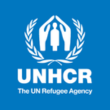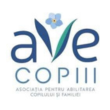Anunțuri de Angajare
- Detalii
- Categorie: Angajări
Extinderea termenului 28 Februarie 2023 - Project Manager - IP ONIPM
Informațiile prezentate în articolul de mai jos pot să nu mai fie actuale sau să nu mai reflecte activitățile și programele curente. Anunțul este păstrat în arhivă pentru a asigura transparența și accesul public la informațiile despre inițiativele și proiectele implementate anterior.
Job Title: Project Manager
Project Title: Conservation and sustainable management of wetlands with focus on high-nature value areas in the Prut River basin
Supervisor: Director PI EPIU
Duration of employment: 12 months with a possibility of extension
Payment Schedule: monthly
II. Background
Brief project description: The objective of the project is to achieve ecological integrity of key floodplain wetlands in the Prut River basin, ensuring positive status of biodiversity, land and water resources, as well as ecosystem services. This will be achieved through provisions for the minimum environmental flow and hydrological repair of declining wetlands and strengthening the PAs management hosting valuable wetlands habitats and key species. The GEF investment will be based on an integrated river basin management approach that ensures the continuity of wetland ecosystem services sustaining livelihoods in the Prut River basin at approximately 20,803 ha of high value wetlands in the Lower Prut Biosphere Reserve, the Royal Forest Nature Reserve and surrounding floodplain. The project-driven hydrological repair of Camenca river’s floodplain, will bring an additional 8.3 million m3 of water annually to nourish declining wetlands in the Prut River mid-section, ensuring the survival of approximately 11,175 ha of valuable floodplain habitat even under a severe climate induced water scarcity scenario. The project-supported improvements of legal and financing frameworks for wetlands and protected areas will enable sustainable management of Prut basin’s wetlands, hosting globally important migratory aquatic birds’ species such as herons, egrets, spoonbills, ibises nesting and feeding in these areas. The project’s demonstration activities and strengthened regulatory framework will pave the way for a more systematic approaches to improving wetlands condition. Involving private sector and strengthening knowledge about voluntary environment certification and “greening” businesses as well as strengthening regulatory framework and legal enforcement will reduce the threats to biodiversity values coming from sectoral land and resource use (agriculture, forestry, food industry, oil exploitation). Supporting local communities accessing affordable financing for their local businesses will help alleviate the pressure on natural resources.
III. Organizational Context
The Ministry of Environment has been selected as the IP EPIU as it represents the government institution responsible for the development of legislation, action plans, norms and standards in the field of environmental protection, sustainable use of natural resources, including management of protected areas, air, waste, water resources, water supply and sewerage system, ensuring compatibility of legal framework with Multilateral Environmental Agreements (MEA). The responsibilities of the Ministry of Environment will include:
- Project planning, coordination, management, monitoring, evaluation and reporting. This includes providing all required information and data necessary for timely, comprehensive and evidence-based project reporting, including results and financial data, as necessary. The Implementing Partner will strive to ensure project-level M&E is undertaken by national institutes and is aligned with national systems so that the data used and generated by the project supports national systems;
- Chairing the Project Board meetings;
- Monitoring the progress of the project at strategic level, towards the achievement of the development outcomes;
- Ensuring effective management of the Risks and Safeguards as outlined in this Project Document and management of new risks that may emerge during project implementation.
- Ensuring that the project partners will deliver the pledged co-financing;
- Ensuring that there is a coherent project organisation structure and logical set of work plans;
- Set tolerances in the AWP and other plans as required for the Project Manager;
- Financial management, including overseeing financial expenditures against project budgets;
- Approving and signing the multiyear workplan;
- Approving and signing the combined delivery report at the end of the year; and,
- Signing the financial report or the funding authorization and certificate of expenditures.
The Ministry has founded the Public Institution Environmental Projects Implementation Unit (EPIU) in order to overcome the above-mentioned barriers, and enable the receipt and management of the donor funded projects. The EPIU is the public institution, functioning under the MOE mandate, responsible to contributing to policy implementation through specific projects. The PI EPIU is mandated to implement various multilateral donor-supported projects (e.g. UNEP, UNIDO, WB) and bilateral donor funded initiatives. PI EPIU is a legal entity with individual state coat stamp, name and treasury accounts and was established with the purpose of supporting the Ministry of Environment to efficiently implement the external and internal financial and technical assistance projects, in accordance with the provisions of the national normative acts regarding the implementation of the requirements of the international conventions, and the alignment with the international standards in the field of environmental protection.
The implementation support services to be provided by the PI EPIU will include:
- Contracting and contract management for procurement of goods, services, and works for the project at national level;
- Certification for contract performance and acceptance of goods and services as per Project Procurement Plan;
- Financial management, including payments for goods and services involving national consultants and made in national currency.
- Logistical support, including duty travel for project personnel and consultants, project event management within the country.
- Equipment and Asset Management services, including IT equipment maintenance, licenses, and ICT support for the project team and project activities.
- Administrative support for the project.
The EPIU will receive cash advances, as the HACT Micro- assessment has indicated that to date, EPIU had received cash advances on behalf of the Ministry of Environment from a number of donors and no difficulties have been encountered/reported with the management of those resources. The PI EPIU will support the implementation of project activities as per the Annual Work Plan, Procurement Plan and Budget, agreed with the Ministry of Environment and UNDP.
IV. Functions / Key Results Expected
The Project Manager is responsible for day-to-day management and decision-making for the project, including the mobilization of all project inputs, supervision over project staff, consultants and sub-contractors. The Project Manager’s prime responsibility is to ensure that the project produces the results specified in the project document, to the required standard of quality and within the specified constraints of time and cost. The Project Manager will oversee implementation of environmental and social safeguards, specifically:
- Manage the overall execution of the project;
- Execute activities by managing personnel, goods and services, training and low-value grants, including drafting terms of reference and work specifications, and overseeing all contractors’ work;
- Monitor events as determined in the project monitoring plan, and update the plan as required;
- Provide support for completion of assessments required by UNDP, spot checks and audits;
- Manage requests for the provision of UNDP financial resources through funding advances, direct payments or reimbursement using the FACE form (as needed);
- Monitor financial resources and accounting to ensure the accuracy and reliability of financial reports;
- Monitor progress, watch for plan deviations and make course corrections when needed within project board-agreed tolerances to achieve results;
- Ensure that changes are controlled and problems addressed;
- Perform regular progress reporting to the project board as agreed with the board, including measures to address challenges and opportunities;
- Prepare and submit financial reports to UNDP and Implementing Partner (IP) on a quarterly basis;
- Manage and monitor the project risks – including social and environmental risks - initially identified and submit new risks to the Project Board for consideration and decision on possible actions if required; update the status of these risks by maintaining the project risks log;
- Monitors the development and implementation of the ESMF and ensures the development and implementation of SESA, ESIA and ESMP;
- Prepare revisions to the multi-year workplan, as needed, as well as annual and quarterly plans if required;
- Prepare the inception report no later than one month after the inception workshop.
- Ensure that the indicators included in the project results framework are monitored annually in advance of the GEF PIR submission deadline so that progress can be reported in the GEF PIR;
- Prepare the GEF PIR and submit the GEF PIR to UNDP;
- Assess major and minor amendments to the project within the parameters set by UNDP-GEF;
- Monitor implementation plans including the gender action plan, stakeholder engagement plan;
- Monitor and track progress against the GEF Core indicators, with the support of the M&E consultant;
- Support the (internal) Midterm review and GEF Terminal Evaluation process.
Specific tasks:
- Component 1: Oversee the legal amendments making sure that the knowledge products’ results (e.g. the relevant project’s studies and reports’ findings) are incorporated in the project-born regulatory and legal amendments and in the draft NBSAP. Oversees the development of SESA and ensures application of UNDP SES requirements to the project’s policy/legal work;
- Component 2: Provide technical inputs into the: (i) PAs management and Business Plans; (ii) Guidelines and Manual for biodiversity mainstreaming in territorial planning; Guides and supports the development of the PAs training modules, together with the project experts and specialized NGO/company. (iii) Oversees and provides technical inputs into the development of the ESIA/ESMP documents and makes sure that UNDP SES requirements are followed. (iv) Oversees and coordinates with the NGO/companies hired to implement the activities at PAs level and coordinates the process framework in the targeted Pas;
- Component 3: Technical inputs into the biodiversity specific tourist routes; participate in the technical working groups of the National Tourism Authority and support development/update of the protocol for anti-COVID-19 measures for safe tourism. The Project manager will ensure that all the project activities are aligned with the UNDP anti-COVID measures for project implementation and encourages;
- Component 4: Edit all the KM products, oversee the accuracy of technical information; write the Exit Strategy and Sustainability and Scaling up Strategy of the project.
- Prepare and submit timely reports to the donor and provide inputs to the Results-oriented Annual Report;
- Facilitate a smooth collaboration between all key project stakeholders by ensuring a continuous flow of information and addressing implementation issues in a pro-active and solution-oriented manner;
- Maintain excellent relationship with the donor and respond promptly to donor’s requests;
V. Competencies
Corporate Competencies:
- Exerts strict adherence to corporate rules, regulations and procedures. Familiarity with the internal control framework and results-based management tools is a must.
- Displays cultural, gender, religion, race, nationality and age sensitivity and adaptability
- Treats peers fairly by maintaining consistent values inspiring trust and confidence through personal credibility
- Accepts responsibility and accountability for the quality of the outcome of his/her decisions
VI. Functional Competencies:
Job Knowledge/Technical Expertise / In-depth knowledge of the Subject-matter
- Understands more advanced aspects of primary area of specialization as well as the fundamental concepts of related disciplines
- Serves as internal consultant in the area of expertise and shares knowledge with staff
- Continues to seek new and improved methods and systems for accomplishing the work of the unit
- Keeps abreast of new developments in area of professional discipline and job knowledge and seeks to develop him/herself professionally
- Demonstrates comprehensive knowledge of information technology and applies it in work assignments
Development and Operational Effectiveness
- Ability to engage with various partners and stakeholders at different levels, to establish and maintain contacts with senior-level officials of the government and local public authorities;
- Ability to communicate effectively, both orally and in writing, is required to obtain, evaluate and interpret factual data and to prepare accurate and complete reports and other documents.
- Capacity to implement the strategic vision and programmatic goals as laid down in the Project Document;
- Proven performance in organizing and coordinating major initiatives, events or challenging inter-organizational activities;
- Adapts flexibly to changing situations, overcomes obstacles and recovers quickly from set-backs
Leadership and Self-Management
- Focuses on result for the client and responds positively to feedback;
- Ability to achieve results and meet strict deadlines in an effective manner, maintaining a high-quality standard throughout
- Consistently approaches work with energy and a positive, constructive attitude
- Tolerates conditions of stress, uncertainty or ambiguity and continues to maintain a positive outlook and to work productively
- Demonstrated ability to manage a team and to foster team spirit and synergy
VII. Recruitment Qualifications
Education: A university degree (MSc or PhD) in a subject related to natural resource management or environmental sciences. Additional training and certification in project management would be an advantage.
Experience:
- At least 10 years of experience in natural resource management
- At least 5 years of demonstrable project/programme management experience.
- At least 5 years of experience working with ministries, national or local level institutions that are concerned with natural resource and/or environmental management.
- Advanced experience in managing complex projects on the ground, including demonstrated capacity to manage a wide range of national and sub-national stakeholders, including local communities;
- Previous working experience in the field of climate change and/or gender is an advantage;
- Good analytical and problem-solving skills and the related ability for adaptive management with prompt action on the conclusion and recommendations coming out from the project’s regular monitoring and self-assessment activities;
- Previous experience in development assistance or related work for a donor organization, governmental institutions, NGO or private sector / consulting firm is a very strong advantage.
- Extensive experience in managing a multidisciplinary team
- Experience in the usage of computers and office software packages (MS Word, Excel, etc) and advance knowledge of spreadsheet and database packages, experience in handling of web-based management systems
Language Requirements:
Fluency in oral and written English, Romanian and Russian.
VIII. Interested must sent to the email: cancelaria@onipm.gov.md the following documents/ information to demonstrate their qualifications:
- CV, including information about past experience in similar assignments and contact details for at least 3 referees;
- Brief description of why the individual considers him/herself as the most suitable for the assignment;
- Offeror's Letter confirming Interest and Availability with financial proposal per month (in MDL).
Application Deadline: 23rd of September 2022, 16:00
New Deadline: 30th of September 2022, 16:00
New Deadline: 4th of November 2022, 16:00
New Deadline: 23rd of December 2022, 16:00
New Deadline: 31st of January 2023, 16:00
New Deadline: 10th of February 2023, 16:00
New Deadline: 28th of February 2023, 16:00
- Supply Chain Officer - Project HOPE Moldova
- Reporter(ă) Site
- UNDP Qu25/03041: DTSP/National Consultant for conducting an accessibility assessment
- OEAPM- Request For Expressions of Interest Assistant Procurement Specialist
- Agenția de Guvernare Electronică anunță concurs de angajare pentru suplinirea postului vacant de Manager în publicitate și marketing
2025 CIVIC DIGITAL SOLUTIONS
Email: support@portal.civic.md









